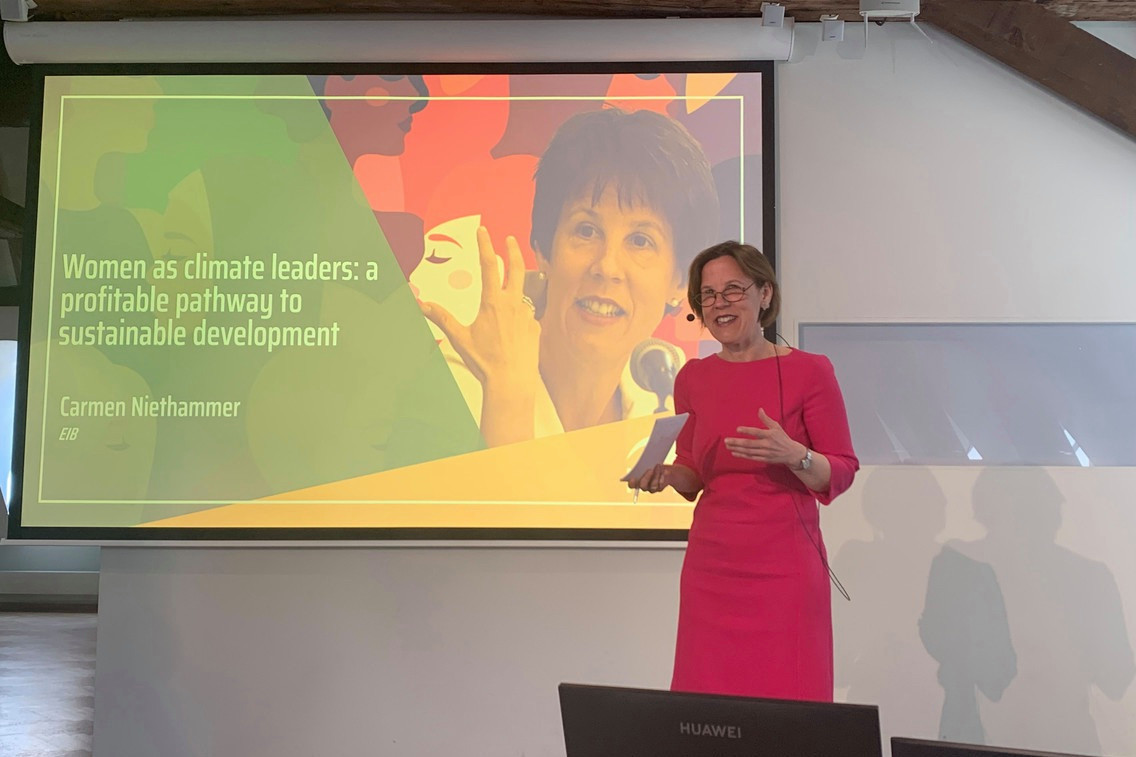Women are disproportionately affected by climate change and are more likely to die from a natural disaster than men in large part because they are at a significant disadvantage when it comes to preparing for climate disasters, according to Niethammer.
Women have less access to finance, fewer savings and fewer jobs than men, and those who do have jobs work in sectors like agriculture, fisheries, water, and forestry are more prone to natural disasters, Niethammer explained. “Climate change is de facto sexist. It affects women negatively in a variety of ways, and we need to make sure that our climate solutions are not sexist.”
Investing in women can help them better prepare for climate disasters and address the gender bias, she explained. “In the past, the development community has often only focused on ‘women being the victim’. What we are increasingly highlighting now is that generating opportunities for women can make a huge difference for financial returns, but also deliver better on climate change outcomes.”
Niethammer’s comments were made ahead of this year’s Climate Finance Forum organised by the International Climate Finance Accelerator, a public-private partnership set up in 2018 under the Luxembourg Climate Finance Strategy.
The EIB has been leading the way on gender lens investing, an approach to investing that takes into consideration gender-based factors. The bank is one of several multi-lateral development banks involved in the 2X Challenge initiative, which in 2021 and 2022. The 2X investment criteria have become a global industry standard widely used to measure the positive impacts of gender finance.
More women leaders
Gender biases are also prevalent in advanced economies and more should be done to get women into leadership positions, Niethammer explained. “We need more women as investors, fund managers, entrepreneurs and leaders. Putting women in charge is essential and it can be done. We don’t do it enough.”
Niethammer pointed to that showed countries with higher female representation in parliament are more prone to ratify environmental treaties and adopt policies that address climate change impacts.
Drawing comparisons with industry’s involvement in meeting global climate targets, Niethammer said companies should also band together and set gender targets. “We have made so much progress in terms of having corporate sector enterprises commit to the net-zero goals. Now we need to bring them along so that they make commitments to gender equality as well.”
Women are also more prudent borrowers than men. According to from the Financial Alliance for Women, non-performing loans from women are 53% lower than that of men. Niethammer said there is a strong business case to invest more in women-led projects. Consumers can also play an active role. “As a client, you can also ask questions to your bank or pension provider. Are they investing in something that is climate or gender-friendly?”
Niethammer said she was optimistic about addressing the gender-climate nexus, adding that men can also be part of the solution. “What gives me hope is that there are more women as climate leaders these days, many of whom are important role models. It’s not that these women don't exist. Moreover, to drive transformation we need to get more men on board and raise awareness on the benefits women business leaders can bring.”
